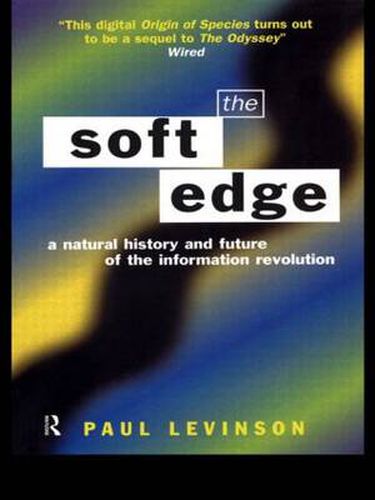Readings Newsletter
Become a Readings Member to make your shopping experience even easier.
Sign in or sign up for free!
You’re not far away from qualifying for FREE standard shipping within Australia
You’ve qualified for FREE standard shipping within Australia
The cart is loading…






This text is a history of the information revolution. Paul Levinson historian and philosopher of media and communications, gives us more than just a history of information technologies. This is a book about theories on the evolution of technology, the effects that human choice has on this ®evolution, and what’s in store for us in the future. Paul Levinson’s engaging voice guides us on a tour that explains how communications media have been responsible for major developments in history and for profound changes in our day-to-day lives. Levinson presents the argument that technology actually becomes more human. We see how information technologies are selected on the basis of how well they meet human needs. Why is email more like speech than print is? Why didn’t the arrival of television destroy the radio? These and many more thought provoking questions are answered. Extending and deepening the pathways blazed by McLuhan, Paul Levinson provides study of life with our old media, our new media, and the media still to come.
$9.00 standard shipping within Australia
FREE standard shipping within Australia for orders over $100.00
Express & International shipping calculated at checkout
This text is a history of the information revolution. Paul Levinson historian and philosopher of media and communications, gives us more than just a history of information technologies. This is a book about theories on the evolution of technology, the effects that human choice has on this ®evolution, and what’s in store for us in the future. Paul Levinson’s engaging voice guides us on a tour that explains how communications media have been responsible for major developments in history and for profound changes in our day-to-day lives. Levinson presents the argument that technology actually becomes more human. We see how information technologies are selected on the basis of how well they meet human needs. Why is email more like speech than print is? Why didn’t the arrival of television destroy the radio? These and many more thought provoking questions are answered. Extending and deepening the pathways blazed by McLuhan, Paul Levinson provides study of life with our old media, our new media, and the media still to come.